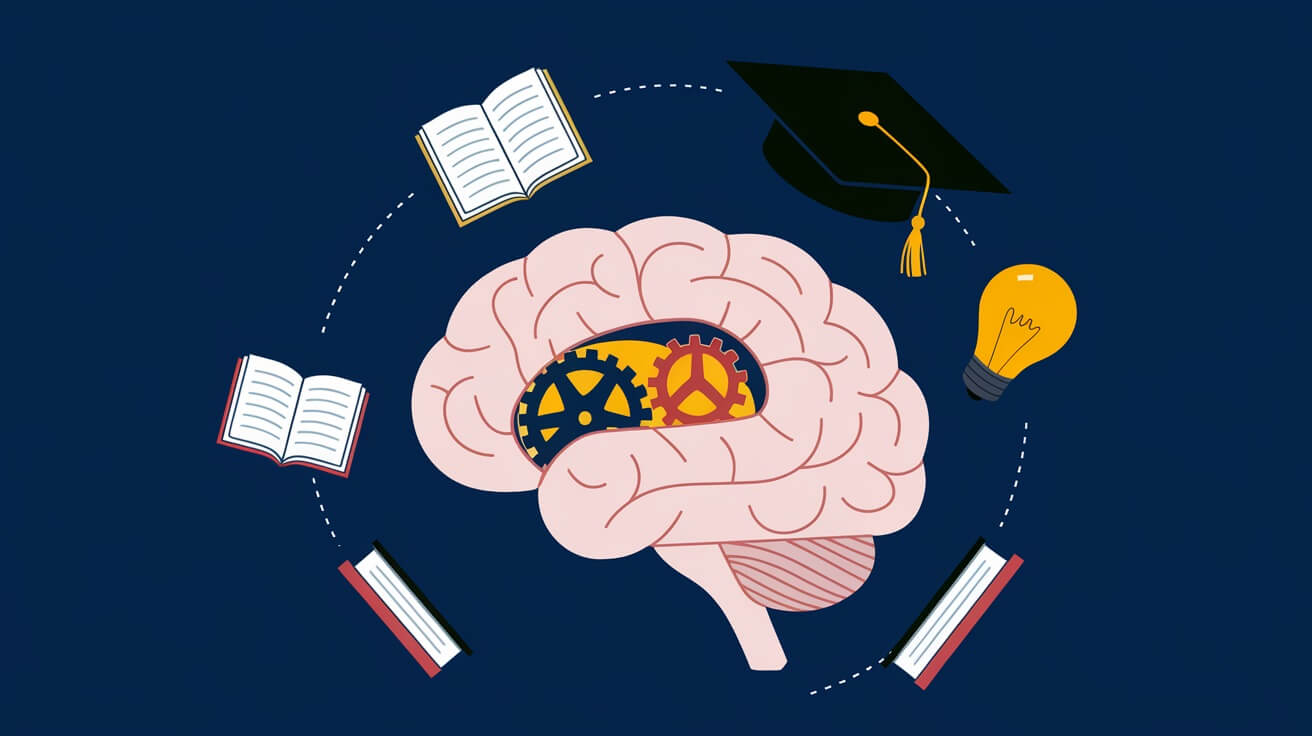
How Lifelong Learning Fuels Your Career Growth
Have you ever felt stuck in your career, wondering what’s next or how to move forward? You’re not alone. Many professionals have reached a point where their current skills or knowledge are no longer sufficient to grow. The good news? There’s a solution: lifelong learning.
Lifelong learning isn’t just a buzzword—it’s a mindset. It’s about consistently developing new skills, expanding your knowledge, and staying curious no matter where you are in your career. This habit helps you adapt to changes in your industry and opens doors to new opportunities and challenges.
This article will explore why lifelong learning is essential to career advancement. We’ll discuss its benefits, share actionable strategies, and address the challenges many face. By the end, you’ll have the tools and inspiration to embrace lifelong learning and take your career to the next level.
What is Lifelong Learning?
Lifelong learning is the ongoing, voluntary pursuit of knowledge for personal or professional reasons. It goes beyond traditional education and includes anything that broadens your perspective, skills, or expertise. Whether it’s a formal certification, attending a workshop, or simply picking up a new hobby, lifelong learning is all about continuous growth.

Characteristics of Lifelong Learning
Lifelong learning embodies a dynamic and adaptable approach to personal and professional growth. It’s defined by three key characteristics that make it accessible and practical for individuals from all walks of life:
1. Self-Directed:
Lifelong learning puts you in control of your educational journey. You choose what to learn, how to approach it, and when to dive in. This autonomy allows you to align your learning with your interests, career goals, and life circumstances. Whether you prefer exploring a new skill through online courses or mastering a hobby through hands-on practice, the direction is yours.
2. Flexible:
One of the most significant advantages of lifelong learning is its adaptability. It fits seamlessly into your schedule, whether you’re a busy professional or someone with spare time. You can tailor it to match your pace, committing as little as 15 minutes daily or diving deeper during weekends or holidays.
3. Inclusive:
Lifelong learning spans a broad spectrum of opportunities. From formal education, like earning a degree or certification, to informal experiences, like reading books, watching tutorials, or participating in community discussions, it’s all about finding what works best for you. This inclusivity ensures that anyone, regardless of resources or background, can embrace the journey of continuous improvement.
Types of Lifelong Learning
Lifelong learning comes in various forms, each catering to different needs, preferences, and circumstances. Understanding these types can support you in choosing the right approach for your goals:
1. Formal Learning:
This type involves structured and institutionalized programs, such as university degrees, certifications, or professional training. Formal learning typically follows a curriculum and provides accreditation, making it ideal for those seeking qualifications recognized by employers or industry standards. For example, earning a Project Management Professional (PMP) certification can significantly enhance career prospects in project management.
2. Non-Formal Learning:
Non-formal learning occurs outside traditional academic settings but is still organized and goal-oriented. This includes workshops, webinars, or community classes designed to teach specific skills or knowledge. For instance, attending a leadership workshop can help professionals develop team management capabilities in a short, focused session.
3. Informal Learning:
Informal learning is self-directed and unstructured, often driven by curiosity or a specific need. It can involve reading books, listening to podcasts, watching online tutorials, or learning through everyday experiences. For example, teaching yourself coding through free online resources is an excellent example of informal learning tailored to individual interests and schedules.
Recognizing these various forms can tailor your learning to fit your lifestyle and career aspirations.
Why Lifelong Learning Matters for Career Advancement

1. Keeping Up with Industry Changes
Jobs and industries evolve constantly. Staying updated with new tools, technologies, and trends ensures you remain relevant.
Example:
In marketing, professionals who learned about data analytics and AI tools like ChatGPT gained a significant edge over those who didn’t.
2. Preventing Career Stagnation
Lack of growth can lead to dissatisfaction or missed opportunities. Lifelong learning helps you identify skill gaps and address them proactively.
I once worked with a colleague who felt stuck in her role as an HR generalist. After completing an online certification in diversity and inclusion, she transitioned into a leadership position, overseeing company-wide DEI initiatives.
3. Boosting Confidence and Adaptability
The more you learn, the more confident and adaptable you become. This helps you tackle challenges head-on, even in unfamiliar situations.
Statistic:
LinkedIn says professionals engaged in continuous learning are 30% more likely to be promoted.
Benefits of Lifelong Learning
1. Staying Relevant
Staying relevant is crucial in an age of rapid technological change. Lifelong learning keeps you informed and adaptable, ensuring your skills match industry demands.
Example:
Healthcare professionals adopting telemedicine during the pandemic exemplify how continuous learning can transform careers.
2. Expanding Career Opportunities
When you learn new skills, you qualify for diverse roles, often in high-demand areas.
Real-Life Insight:
A software developer who learned cloud computing and DevOps transitioned into a senior role with a higher salary.
3. Improving Job Satisfaction
Learning new skills or concepts adds variety to your work and makes your job more engaging.
Key Takeaway:
Lifelong learners report higher levels of job satisfaction because they’re constantly growing and evolving.
Strategies to Incorporate Lifelong Learning
1. Explore Online Platforms
Platforms like Coursera, Udemy, and Khan Academy offer courses in everything from technical skills to personal development. Many are self-paced, making them ideal for busy professionals.
Pro Tip: Start with free courses to explore your interests before investing in paid certifications.
2. Develop a Personal Learning Plan
Set clear, achievable goals for your learning journey. For example:
-
Identify the skills you need for your desired role.
-
Dedicate time each week for focused learning.
-
Track your progress with measurable milestones.
Example:
To become a project manager, you could set a goal to complete a PMP certification within six months.
3. Attend Networking Events and Seek Mentorship
Learning doesn’t always happen in a classroom or online. Conversations with peers, industry leaders, or mentors can provide valuable insights and guidance.
Personal Experience:
I participated in a writing workshop where I met a mentor who taught me how to structure my content for better reader engagement—a skill I use daily.
4. Leverage Microlearning
Break your learning into small, manageable chunks. Watch a 10-minute tutorial during lunch or read a chapter of a book before bed. Consistency is key.
Challenges and How to Overcome Them
1. Lack of Time
Balancing work, family, and personal commitments can make learning feel impossible.
Solution:
-
Schedule learning sessions during your commute or on weekends.
-
Use apps like Blinkist for bite-sized learning.
2. Financial Constraints
Formal education can be expensive, but there are affordable alternatives.
Solution:
-
Explore free or low-cost resources like MOOCs (Massive Open Online Courses).
-
Borrow books from libraries or use free online articles.
3. Fear of Failure
Beginning something new can be discouraging, especially if stepping out of your comfort zone.
Solution:
-
Embrace a growth mindset. Mistakes are part of the learning process.
-
Begin with low-stakes projects to build confidence.
The Future of Lifelong Learning
Emerging Trends
-
Microlearning: Short lessons tailored to busy schedules.
-
Gamification: Interactive tools that make learning fun and engaging.
-
AI-Powered Education: Personalized learning paths based on your preferences and pace.
Example:
Apps like Duolingo use gamification and AI to make language learning accessible and practical.
The Role of Technology
Technology has revolutionized lifelong learning. You can now access high-quality courses, virtual events, and global mentors from the comfort of your home.
Conclusion
Lifelong learning is more than a career strategy—it’s a mindset that empowers you to grow, adapt, and thrive. Whether exploring a new field, aiming for a promotion, or simply curious about the world, learning opens doors you never knew existed.
So, ask yourself: What’s the next skill or knowledge you want to gain? Take the first step today, and watch how it transforms your career and life.
FAQs
1. What are the key benefits of lifelong learning?
Lifelong learning helps you stay relevant, secure better opportunities, and maintain job satisfaction by continuously growing your skills.
2. How do I start lifelong learning?
Identify your goals, choose resources that align with them, and set aside consistent time for learning.
3. Can lifelong learning improve job opportunities?
Yes. Employers value candidates who show initiative and adaptability through continuous education.
4. What are affordable ways to pursue lifelong learning?
Free resources like YouTube, MOOCs, and public libraries offer excellent starting points.
5. How can I manage learning with a full-time job?
Incorporate microlearning into your routine and prioritize consistency over intensity.
Career Development




